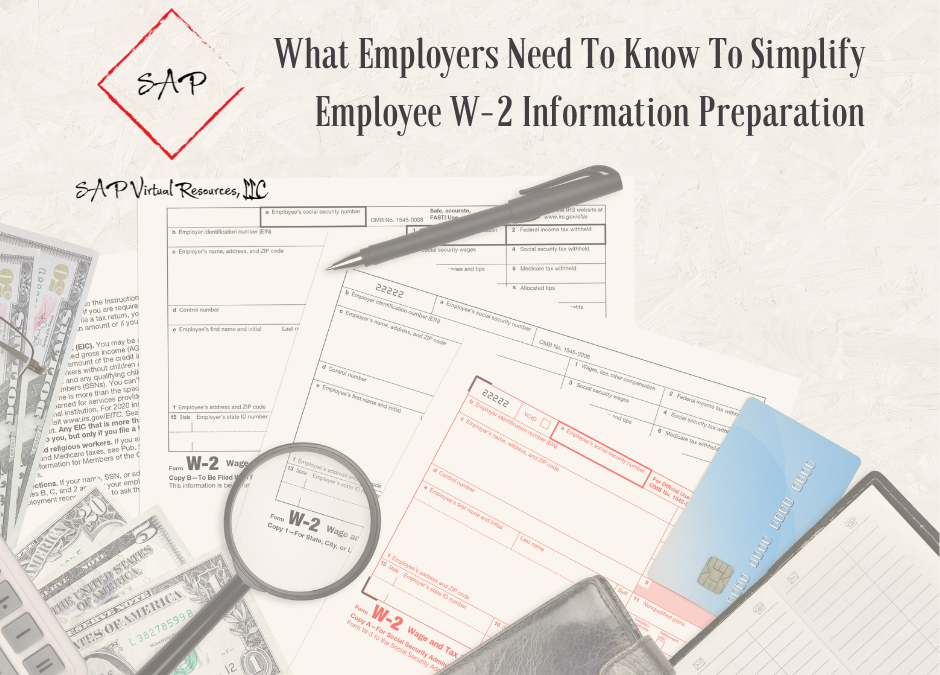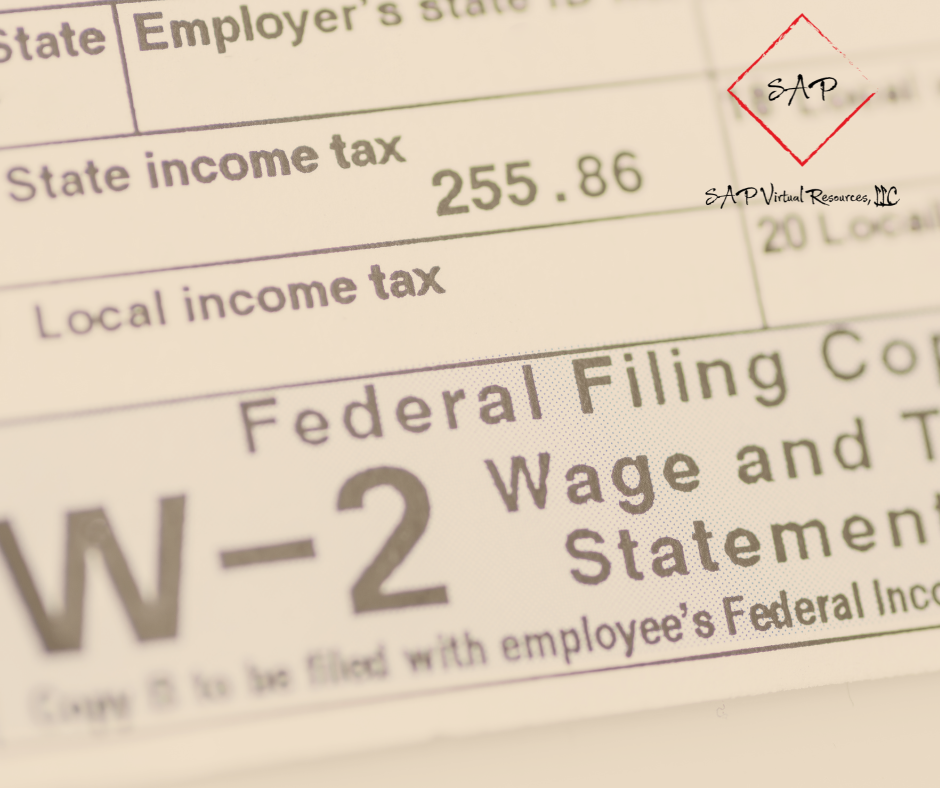
What Employers Need To Know To Simplify Employee W-2 Preparation
As tax season approaches, employers must gather W-2 information to simplify preparation, meet deadlines, and ensure accuracy. It is imperative that you that you comply with IRS rules.
Whether you are managing a small team or a growing workforce, I will walk you through the critical steps to gather the necessary information for W-2s, handle taxable employee gifts, verify pay stub details, and take advantage of electronic W-2s.
Step 1: Confirm employee information is accurate.
All employee information must be up-to-date and accurate. Errors on the forms can lead to IRS penalties and delays in employees receiving their tax returns.
Information you should check includes:
Full Legal Name – Verify it matches the name on the employee’s Social Security card to avoid mismatches.
Current Address – Confirm the address is correct to prevent W-2s from being lost or delayed.
Social Security Numbers—Check social security numbers for accuracy. Look for typos or missing digits to avoid IRS scrutiny.
Send a checklist to all employees, asking them to confirm or update their information by a specific date. A quick audit of this data can save you time and headaches later.
Step 2: Pay Stub Information
Now that you have confirmed your employees’ details, it is time to move on to your payroll records. Pay stubs should accurately reflect wages, deductions, and benefits that will appear on W-2 forms. Discrepancies can create added work during tax season.
Here’s what to review:
Year-to-date earnings: Ensure all wages, including salaries, overtime, and bonuses, are correctly recorded.
Deductions and withholdings: Verify federal and state income taxes, Social Security, and Medicare amounts.
Adjustments for taxable benefits Include personal use of company vehicle or other perks.
Encourage employees to check their pay information and notify you of any suspected errors. When you and the employees collaborate to ensure accuracy, you can minimize the risk of mistakes.
Step 3: Report Employee Gifts
Showing appreciation to your employees creates a healthy work environment. However, not all gifts are exempt from tax reporting. Some gifts may need to be included as taxable income on W-2 forms.
Here is the differentiator:
Taxable Gifts: gift cards, cash equivalents, or items of significant value given for birthdays, work anniversaries, or holidays must be reported. The IRS considers these forms of compensation, not perks.
Non-taxable Gifts: Company-branded items like shirts, water bottles, or mugs that are infrequent and of minimal value fall under “de minimis” benefits and are excluded from taxable wages.
Following the IRS guidelines on taxable benefits ensures compliance while allowing you to continue rewarding your team without complication.
Step 4: Use Electronic W-2s
Sending W-2s electronically can save time, reduce costs, and streamline your workflow If you follow the proper steps to comply with IRS guidelines.
You must have employee consent before using electronic W-2s.
Here is how to obtain consent:
Notification of Intent: Inform your employees you plan to send W-2s electronically. Include details on how they will access them and the benefits of electronic W-2s.
Written or Electronic Consent: Employees must agree in writing or electronically. An email or the use of a secure portal is acceptable.
Access Confirmation: Ensure employees can access the electronic format you will use.
Revocation Option: Employees can withdraw their consent for an electronic W-2 and request a paper one.
When you use electronic W-2s correctly, you can save resources and stay within IRS guidelines simultaneously.
Step 5: Educate Employees
Cooperation in verifying information is more manageable when employees understand why it matters. Communication is vital to helping educate employees.
Communication best practices:
Send a company-wide email or memo outlining what information you need and why.
Set a deadline for employees to confirm their personal details or report discrepancies.
Prepare a summary of employees’ year-to-date earnings and benefits and ask them to cross-check for accuracy.
Keeping employees aware of the W-2 process will foster collaboration.
Step 6: Prepare W-2s for Submission
Now, you can begin preparing your W-2 forms.
IRS deadlines are strict and must be met.
January 31st is the deadline to send W-2s to employees and submit copies to the SSA.
If you have more than ten W-2s, you must submit them electronically along with a W-3. The Form W-3 is required if you send out more than one W-2.
Penalties for errors and missed deadlines can be costly. Confirm all information to avoid any penalties.
Hire a Professional
The W-2 season doesn’t have to be overwhelming. Follow the above steps to streamline the process and avoid unnecessary stress.
If you do not currently use payroll software and accounting tools to automate your calculations and ensure accuracy, now would be the time to look at the possibilities for your 2025 payroll needs.
Year-end comes with a long list of tasks for business owners. Delegating to a trusted professional in bookkeeping and payroll allows you to feel more at ease about W-2 preparation. Contact me today to help simplify your W-2 preparation and ensure a successful tax season.


